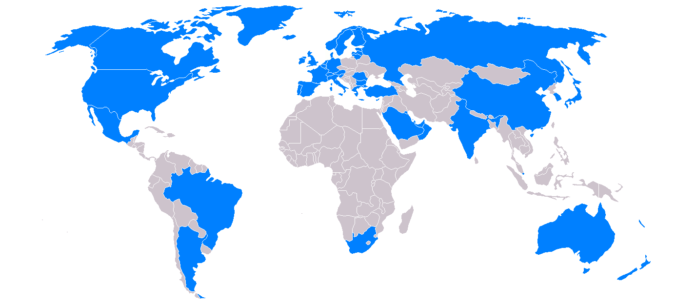Nigeria may soon leave the Financial Action Task Force (FATF) grey list, according to Dr. Emomotimi Agama, the Director-General of the Securities and Exchange Commission (SEC).
Agama made this announcement in Abuja following the signing of the Investments and Securities Act 2025 by President Bola Tinubu.
Speaking in a statement issued by the SEC, Agama said the inclusion of digital asset regulation in the new law provides a framework to address weaknesses in Nigeria’s anti-money laundering (AML) and counter-terrorism financing (CFT) regimes.
“The AML/CFT issue was the reason for Nigeria’s inclusion in the grey list,” he explained.
“This new law provides us an avenue to exit that list, and that is very critical to the international community. We are telling the world that Nigeria is ready for business and committed to protecting investments within the country.”
Nigeria was placed on the FATF grey list in February 2023 due to gaps in its anti-money laundering and terrorism financing policies. Countries on the list undergo enhanced monitoring until necessary reforms are implemented.
SEC’s Plan for Digital Asset Regulation
Agama said the new legislation strengthens SEC’s ability to regulate digital assets, ensuring compliance and boosting investor confidence.
“The SEC now has the power to clamp down on unregulated entities. We encourage those involved in digital assets to come under regulation and seek guidance,” he said.
“The essence of regulation is to provide safeguards around institutions, products, and people, ensuring that illegal activities are prevented.”
He dismissed concerns that cryptocurrency trading weakens the naira, arguing that proper regulation would create a secure operating environment and support economic growth.
Collaborative Efforts and Next Steps
The SEC is working closely with agencies like the Central Bank of Nigeria (CBN), the Economic and Financial Crimes Commission (EFCC), and the Nigeria Financial Intelligence Unit (NFIU) to develop a strong regulatory framework for digital assets.
“We are ensuring that everyone in this space is properly guided. Investment—whether digital or traditional—carries risk, and our role is to manage that risk effectively,” Agama noted.
SEC is also rolling out phased licensing programs, including the Regulatory Incubation Programme and the Accelerated Incubation Programme, to evaluate risks posed by operators in the digital asset market.
“After assessing the first two quarters, we will release the next cohort in the coming quarter,” Agama said, hinting at upcoming policy updates.
To enhance investor protection, SEC is introducing risk management tools and Know Your Customer (KYC) enhancements to help identify genuine investors while eliminating fraudulent players.
“Investors will feel more confident knowing we have their back, and this will improve market stability,” he added.
Like 👍, Comment, share this article, and Follow us on our social media handles.







